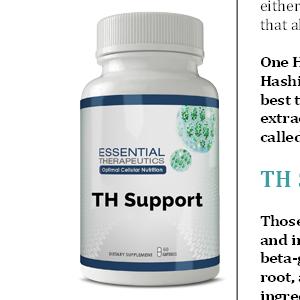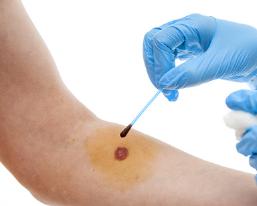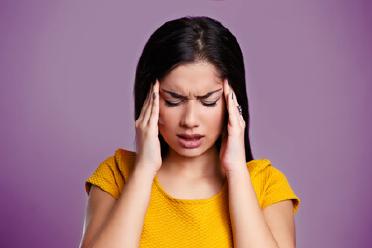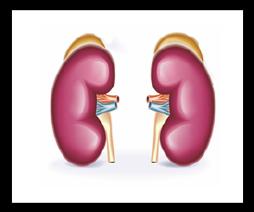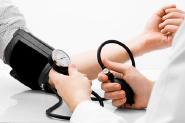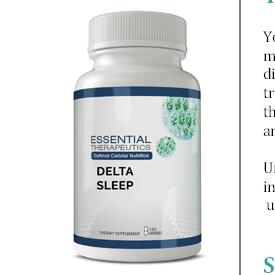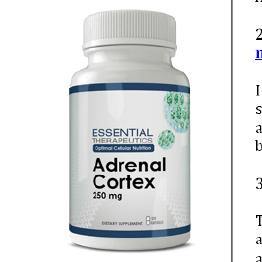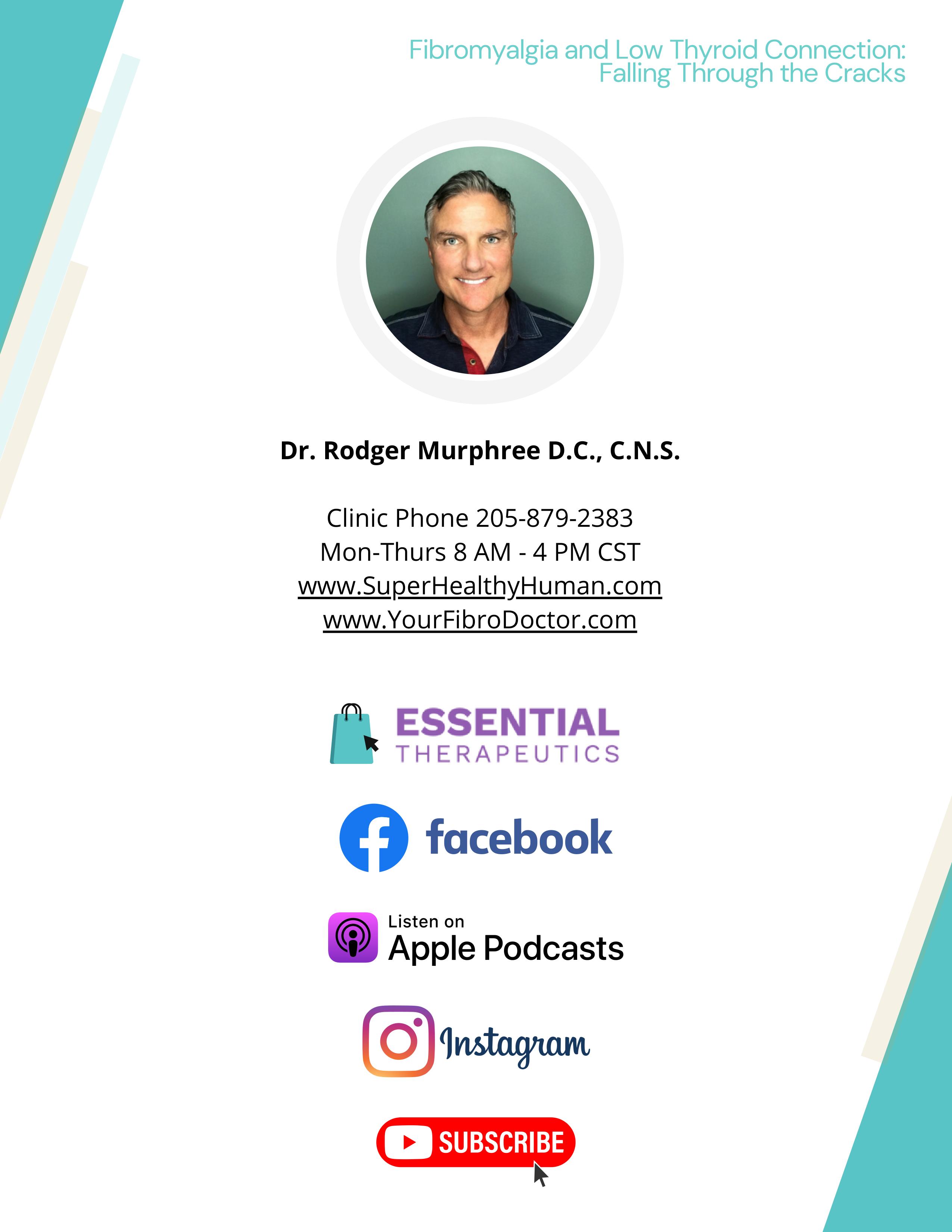

Dr. Murphree has been in private practice since 1990. He is the founder and past clinic director for a large integrated medical practice located on the campus of Brookwood Hospital in Birmingham, Alabama. Dr. Murphree is the author of Treating and Beating Fibromyalgia and Chronic Fatigue Syndrome; Heart Disease: What Your Doctor Won’t Tell You; and Treating and Beating Anxiety and Depression with Orthomolecular Medicine.
Dr. Murphree has treated well over 5,000 patients who suffered from fibromyalgia, chronic fatigue syndrome, anxiety, and many other illnesses such as hypothyroid.
Sick & Tired of Being SICK AND TIRED? It Might Be Your Thyroid.
A Special Report by Dr. Rodger Murphree
AccordingtotheAmericanAssociationofClinicalEndocrinologists,over twenty-sevenmillionAmericanssufferfromthyroiddysfunction,halfofwhichgo undiagnosed.Over500,000newcasesofthyroiddiseaseoccureachyear.
It’s estimated that more than ten million women with thyroid dysfunction go untreated. And almost another eight million people with hypothyroid go completely undiagnosed.
Hypothyroidismaffectswomenfivetoseventimesmorethanmen.
Every cell in the body depends upon thyroid hormones to operate properly.
Low thyroid function, known as hypothyroid, can lead to numerous unwanted symptoms including:
fatigue (the most profound symptom)
headache
dry skin swelling
weight gain
cold hands and feet
poor memory hair loss
hoarseness
nervousness
depression
joint and muscle pain
burning or tingling in the hands and/or feet
carpal tunnel syndrome
problems with balance and equilibrium constipation
Copyright 2022 -YourFibroDoctor.com
myxedema (non-pitting edema due to the deposition of mucin in the skin), especially around the ankles and below the eyes
high blood pressure
chest pain
hardening of the arteries
high cholesterol
menstrual irregularities, PMS, and infertility
fibrocystic breast disease
Polycystic ovary syndrome
reactive low blood sugars
psoriasis
nasal allergies
yellowing of skin from a build up of carotene (conversion of carotene to vitamin A is slowed by hypothyroidism)
"The doctor of the future will give no medicine but will interest his patients in the care of the human frame, in diet, and in the cause and prevention of disease.”
—Thomas EdisonClues You May Have Low Thyroid Function
Ahighbirthweightofover8lbs.suggestslowthyroid.Also,frequentear infections,colds,pneumonia,bronchitis,orotherinfectionsmaybesignsoflow thyroidfunction.
Problemsmayshowupinschool,includingdifficultyconcentrating, abnormal fatigue--especially having difficulty getting up in the morning, and poorathleticabilityallsuggestalowthyroidfunction.Often,adolescentgirls sufferfrommenstrualirregularity,premenstrualsyndrome,andpainfulperiods.

Throughoutlife,disordersassociatedwithhypothyroidismincludeheadaches, migraines,sinusinfections,post-nasaldrip,visualdisturbances,frequent respiratoryinfections,difficultyswallowing,heartpalpitations,indigestion,gas, flatulence,constipation,diarrhea,frequentbladderinfections,infertility, reducedlibido,andsleepdisturbances,withthepersonsometimesrequiring upto12ormorehoursofsleepattimes-workallweekthencrashallweekend.
Physical Appearance
Thephysicalexaminationoftenrevealsthehairtobedry,brittleandthinning. Theouterthirdoftheeyebrowsarethinningoroftenmissing.Swellingunder the eyes is common. The tongue is often thick and swollen. The skin may be rough,dryandflaky,andshowevidenceofacne.
Theskinmayhaveayellowishtingeduetoinabilitytoconvertbeta-carotene. Nailstendtobebrittleandbreakeasily.Thethyroidglandmaybeenlarged.The patientisoftenoverweight,butmayalsobeunderweight.Thehandsandfeetare frequentlycoldtothetouch.


About Your Thyroid Gland
Yourthyroidglandislocatedinthefrontoftheneckattachedtothelowerpart ofthevoice-box(orlarynx)andtotheupperpartofthewindpipe(ortrachea). Themainfunctionofthethyroidglandistotakeiodine,foundinmanyfoods, andconvertitintothyroidhormones:thyroxine(T4)andtriiodothyronine (T3).
TypicallythethyroidproducesmostlyT4hormone;itonlyproducesasmall percentage(about7percent)oftheT3youneed.TherestoftheT3youneedis convertedbythebodyfromtheT4itmakes.(Itusesabout60percentofitsT4 andusestherestforconversion.)T3istheactivehormoneform,severaltimes morepotentthanT4.
DID YOU KNOW ...
Women are naturally prone to iodine deficiencies. That’s because the thyroid gland in women is twice as large as in men -- so under normal circumstances, women need more iodine.
However, when women are under stress, the need for iodine can double or triple!

According to the National Institutes of Health, Goiter had become endemic in the 1920s in certain regions of the United States ? the Great Lakes, Appalachians and Northwestern regions were nicknamed the goiter belt because of this. As a solution to introduce more iodine into the diets of people who lived inland or at high elevations, where iodine is not naturally present, the United States started fortifying salt with iodine, in 1924. The goiter problem was gone almost overnight.
This conversion usually happens in the liver, but about one-fifth of the time, the conversion of T4 into T3 happens in the intestines — provided there is enough healthy, “good” bacteria there.
Since20percentoftheconversionofT4intoactiveT3happensintheGItract, somethingasroutineastakingantibioticscanderailyourthyroidandyour metabolism,becausetheantibioticskilloffthegoodbacteriainyourintestines. Bacterialoryeastovergrowthcanalsoleadtopoorthyroidfunction.Asluggish orfattylivercancausealoweredT4-to-T3conversion(andso,alowered metabolism).
Iodine plays an important role in the function of the thyroid gland.
It’sthechiefcomponentofthyroidhormones,andisessentialfortheir production.Iodineisobtainedfromthewaterwedrinkandthefoodweeat.If thereistoolittleiodineavailableinourdiet,insufficientthyroidhormoneis producedbythethyroid-andthepersondevelopssymptomsoflowthyroid function.
Aniodinedeficiencycancauseanabnormalenlargementofyourthyroidgland. Thisisknownasagoiter(GOI-tur). Althoughgoitersareusuallypainless,alarge goitercancauseacoughandmakeitdifficultforyoutoswalloworbreathe.They canalsoindicateothermoreannoyingconditions,likethebeginningofan autoimmunediseaseknownasHashimoto’sthyroiditis.
Themostcommoncauseofgoitersworldwideisalackofiodineinthediet.Inthe UnitedStates,wheretheuseofiodizedsaltiscommon,agoiterismoreoftendue totheover-orunderproductionofthyroidhormonesortonodulesinthegland itself.
Not all goiters cause signs and symptoms. When signs and symptoms do occur they may include:
Aswellingatthebaseofyourneckthatmaybeparticularlyobviouswhen youshaveorputonmakeup
Atightfeelinginyourthroat
Coughing
Hoarseness
Difficultyswallowing
Difficultybreathing
Thenormalthyroidglandproducesabout80%T4andabout20%T3.However, T3possessesaboutfourtimesthehormone"strength"asT4.Thisisavery importantconceptasyou’llseelaterinthisreport.
Thyroidcellsaretheonlycellsinthebody,whichcanabsorbiodine.Thesecells combineiodineandtheaminoacidtyrosinetomakeT3andT4.T3andT4are thenreleasedintothebloodstreamandaretransportedthroughoutthebody wheretheycontrolmetabolism.
Metabolism is the process by which your body converts what you eat and drink into energy. During this complex biochemical process, calories in food and beverages are combined with oxygen to release the energy your body needs to function.
Metabolism, specifically resting metabolism, is the body’s engine. It’s the energy you burn just to keep your heart beating, your lungs breathing, and your other organs running.
Unlessyou’reaneliteathlete,restingmetabolismaccountsfor60%to75%ofall thecaloriesyouburneachday,anditvariesalotfrompersontoperson.
The Hypothalamic - Pituitary - Thyroid Axis
Hormonesproducedbytwootherorgansinfluencethethyroidgland. Thepituitarygland,locatedatthebaseofthebrain,producesthyroidstimulating hormone(TSH)andthehypothalamus,asmallpartofthebrainabovethe pituitary,whichproducesthyrotropin-releasinghormone(TRH).
Whenthelevelofthyroidhormones(T3&T4)dropstoolow,TRHisreleased, stimulatingthepituitarytoreleaseTSH,whichstimulatesthethyroidglandto producemorehormones.
The Thyroid Acts as Your Body’s Furnace
Onecanimaginethethyroidglandasafurnaceandthepituitaryglandasthe thermostat.Thyroidhormonesarelikeheat.Whentheheatgetsbacktothe thermostat,itturnsthethermostatoff.Astheroomcools(thethyroidhormone levelsdrop),thethermostatturnsbackon(TSHincreases)andthefurnace producesmoreheat(thyroidhormones).
Keep this concept of heat regulation in mind as I explain further on in this report, how thyroid hormones in control your body temperature, normally 98.6 degrees (Fahrenheit).
There are Three Types of Hypothyroid:
Primary hypothyroidism arises from a deficiency in the thyroid gland.
Secondary hypothyroidism involves the pituitary gland.
In Tertiary hypothyroidism, the hypothalamus gland shuts down in response to overwhelming stress.


Enzymes, and their actions, are influenced by the metabolic temperature of the body which is controlled by the thyroid hormones. When the body temperature is too low, the enzymes slow down, creating hypo-metabolism (hypothyroidism) and reduced metabolism (cellular energy). Then, every cell and every bodily system starts to slow down, leading to all sorts of health problems: fatigue, unwanted weight gain, poor sleep, lowered immune function, high blood pressure, elevated cholesterol levels, anxiety, depression, achy pain, constipation, tingling hands and feet, brain fog…
Tertiary hypothyroidism is common in euthyroid syndrome patients. Patients who have “normal” blood work yet have all the symptoms of low thyroid. Blood tests aren’t always accurate and doctors don’t always order a complete thyroid panel. This often results in patients being misdiagnosed as being “normal,” even though they have all the symptoms of low thyroid.
Euthyroid Syndrome
Euthyroidisamedicaltermforpatientswhohavenormalthyroidbloodtests buthaveallthesymptomsassociatedwithhypothyroidism;fatigue,low metabolism,headaches,etc.Euthyroidpatientsoftenrelatethattheyand sometimes even their doctor suspected a thyroid problem only to have their bloodworkcomeback"normal".
Aeuthyroidpatientwillhavenormalbloodworkbutstillsufferfromlowthyroid. Most physician's won't recommend thyroid replacement therapy if the blood testscomeback"normal.”
Normallythiscanbeuncoveredwithasimpletemperatureselftest.I’llexplain morelaterinthisreport.ButifyoudohaveeuthyroidoverthecounterT3 thyroid supplements often work very well to reduce the normal low thyroid symptoms.
Low Body Temperature is a Major Sign of Hypothyroid And Often Euthyroid
Dr.Barneswasthefirsttoshowthatalowbasalbodytemperaturewas associatedwithlowthyroid.Hisfirststudywaspublishedin1942andappeared inTheJournaloftheAmericanMedicalAssociation.
Thisstudytracked1,000collegestudentsandshowedthatmonitoringbody temperatureforthyroidfunctionwasavalidifnotsuperiorapproachtoother thyroidtests.

A reading at or below 97.8 strongly suggests hypothyroid. A reading above 98.6 may indicate hyperthyroidism (over active thyroid).


There’s no way to measure how much thyroid hormone is actively in the cell by measuring it in the bloodstream. We can only guess how much thyroid hormone is actually in the cell!
Thyroid blood tests are nothing more than a guess!
Whenthebodytemperatureistoolowtheenzymesslowdowncreating hypo-metabolism(hypothyroidism)andreducedmetabolism(cellularenergy) andeverycellandeverybodilysystemstartstoslowdownleadingtoallsortsof healthproblems-fatigue,unwantedweightgain,poorsleep,loweredimmune function,highbloodpressure,elevatedcholesterollevels,anxiety,depression, achypain,constipation,tinglinghandsandfeet,brainfog…
Highfeversspeedupthemetabolismandallowthebodytofightoffinfections Hypothermia(90degreesorbelow)canbelifethreateningandisconsidereda medicalemergency. The body works best at the optimal temperature of 98.6.
How To Self-Test For Low Thyroid
ThetestforlowthyroidfunctionaccordingtoDr.Barnesprotocol:Firstthingin themorningwhilestillinbed,shakedownandplaceamercurythermometer (digitalthermometersarenotasaccurate)underyourarmandleavetherefor tenminutes.
Recordyourtemperatureinadailylog.Womenwhoarestillhavingmenstrual cyclesshouldtaketheirtemperatureafterthesecondandthirddaysofthe period.Menopausalwomencantaketheirtemperatureonanyday.
Ifusingadigitalthermometerwait2hoursafterwakingupandtake Yourtemperatureunderthetongue(don’teat,drinkorbrushyourteeth10 minutesbeforetakingyourtemperature).
A reading at or below 97.8 strongly suggests hypothyroid. A reading above 98.6 may indicate hyperthyroidism (over active thyroid).
Blood Tests for Thyroid Function are Often Inaccurate
Bloodtestsforthyroidfunctionmeasuretheamountofthyroidstimulating hormone(TSH),T4,andT3inthebloodstream.Butthyroidhormonesdon’tdo anythingwithinthebloodstream;theactiontakesplaceinthecellsthemselves. There’snowaytomeasurehowmuchthyroidhormoneisactivelyinthecell.
We can only guess how much thyroid hormone is actually in the cell.
The Journal of Clinical Psychiatry has reported that, “Laboratory blood tests for thyroid may be inaccurate for many who get tested for hypothyroid disorder.”
Not only are blood tests inaccurate, but the parameters for determining who has a thyroid disorder and who doesn’t, have been changed. And most doctors don’t even acknowledge these changes!
Inthepastthosewithathyroid-stimulatinghormone(TSH)above5.0were consideredhypothyroid(lowthyroid).However,manydoctorswouldn’t prescribethyroidhormonetherapyuntiltheTSHreached10ormore.


Individuals taking synthetic thyroid hormones like Synthroid (T4 only) may continue to have the symptoms of low thyroid for years, even in spite of normal blood tests.
Your T4 prescription thyroid drugsSynthroid, Levoxyl, Levothroid, etc., may be worthless.
In
2004 The American Association of Clinical Endocrinology (AACE) changed the guidelines so
that a TSH above 3.04 is now considered positive for hypothyroid.
SomedoctorsbelievethatanyonewhohasaTSHabove2andcomplainsof hypothyroidsymptoms(depression,fatigue,brainfog,etc.)shouldbeplaced onthyroidhormone.AndIwouldagree.
I routinely get patientswho’ve beento theirdoctor, had a thyroid blood test which showed their TSH was above 3.04 only to have their doctor tell them “yourbloodtestslooknormal.”Theyareinfactnot!
Themajorityoflabsarestillusingtheoldguidelinesaswell.Soifyougotoyour doctorandheorshetakesyourbloodanditcomesbackwithaTSHof4.0they willtellyouyou’refine,thereisnoproblemwithyourthyroid.
Traditionaldoctorsareonlytoohappytotreatyoursymptomsoffatigue,weight gain,lowmoods,andhighbloodpressurewithpotentiallydangerousdrugs, Ritalin,Adderall,Prozac,andbloodpressuremedications.
Ofcourseifthey’donlytreatyourlowthyroidyouwouldn’thaveallthese symptoms,heyyoumightactuallygetwellandwouldn’tneedtoseeadoctor….
Allison’s Story
I really felt terrible most of the time. I had no energy at all. I’d gained forty pounds over the last year, even though I ate very little and tried to follow my Weight Watcher’s program. I kept cutting my calorie intake and even started skipping meals in an attempt to lose weight.
The less I ate, the worse I felt. I had numerous sinus infections, which I had never had before. My hair was falling out, I had tingling pain in my hands and feet, and I always felt cold—even in the summer. I had this constant ringing in my ears. I was depressed or anxious a good deal of the time.


Thousands of patients miss out on the life-restoring benefits of thyroid replacement due to a missed adrenal insufficiency. What a shame. Especially since the restoration of low thyroid function can yield such amazing health results including, increased energy, better moods, less pain, lower cholesterol, and improved immune function, to name but a few.


I recommend my patients take a good optimal daily allowance multivitamin to make sure they get adequate intake of selenium, magnesium, and B vitamins.
Every doctor I consulted said that my blood tests were normal so it must be my fibromyalgia that was causing me to feel so bad. I knew something was wrong with me, but I couldn’t find anyone who could help me. One doctor said I had all the symptoms of low thyroid, but the endocrinologist she referred me to said all my tests were normal. How could my thyroid be normal when I have all the symptoms of hypothyroid?
Falling Through The Cracks
Allison’sstoryistypical.Iroutinelyhavenewpatientswhopresentwithallthe symptomsofhypothyroidbutaren'tproperlydiagnosed.Thesepatientshave oftenfallenthroughthecracks.It’snotunusualforthesepatientstotellmethat theyhavebeentestedoverandoveragainforhypothyroidismbuttheirtestsare normalandtheirdoctortellsthemthey’refine.Unfortunately,mostdoctorsare happytorecommendamood-elevatingantidepressant,stimulating amphetaminelikeRitalin,painpillorcholesterol-loweringmedicationforthe symptomsoflowthyroidinsteadtreatinglowthyroidfunction.
Whenhypothyroidsymptomsarepresent,yetbloodtestsreturnnormal,many doctorsarereluctanttoprescribethyroidreplacementforfearofjeopardizing thehealthofthepatient.Andcertainlytherisksshouldbeconsidered;excess thyroid hormone can cause elevated heart rate, rapid pulse, and accelerated boneloss.Oncetheirthyroiddisorderiscorrected,manyareabletodrastically reduceoreventuallyweanoffthesemedications.Thistragicsituationisjustone reasonwhileI’vealwaysadvocatedtreatingthepatientandtheirsymptoms insteadoftreatingthebloodwork.
Cindy’s Story
I’ve felt miserable for fourteen years. Fibromyalgia, chronic fatigue, type II diabetes, hypothyroid, I had it all. My problems began after I had a hysterectomy. I was never the same after the surgery. I felt rundown, weak, and I started having problems with poor sleep and lots of pain. I could barely get out of bed. I gained thirty pounds the first two years after the surgery. My hair was falling out. I became depressed and totally withdrawn from the world. I went to doctor after doctor, and finally I was diagnosed first with fibromyalgia and then with a hypothyroid condition.
I was put on all sorts of drugs, including Synthroid for my thyroid. Every three to four months, I’d have blood work to check my thyroid, and my endocrinologist would say, “Everything looks good; keep doing what you’re doing.” How could everything be good? I was still gaining weight—had now gained a total of sixty pounds in the last five years— my hair was falling out, I was tired all the time, and I felt like I’d been hit by a truck. Something had to change.

I met Dr. Murphree at a lecture in St. Louis, and I knew he was someone who knew what I was going through and could fix me.
He ran lots of tests and found that my thyroid medicine wasn’t working, so he added an over-the-counter thyroid supplement to help it work properly. I felt better in a week. He then placed me on adrenal cortex supplements, vitamins, minerals, and a sleep formula. Six weeks later, I was sleeping through the night, had more energy, less pain, and felt better than I had in years. I lost fourteen pounds the first two months and forty pounds while on his anti-inflammatory weight-loss diet.
If labs show a TSH of above 3.0 I place my patients on an over the counter T3 thyroid supplement.
And since it can be hard, next to impossible to get most doctors to recommend thyroid hormones based on a TSH below 4.5 many of my readers will simply opt to try an over the counter T3 Thyroid supplement. They tend to do well on this supplement without the need for thyroid drugs.
Why Your Thyroid Isn’t Performing As It Should?
Basedonthepasttwodecadeoftheresearchandclinicalexperience,thereare severaltriggersbutherearesomeofthereasonsforthehighrateof hypothyroidismthatwenowhaveinthiscountry.
Hashimoto’s Thyroiditis Often Goes Undiagnosed And Improperly Treated
Hashimoto’sthyroiditisisnamedforHakuraHashimoto,aJapanesephysician whoworkedinEuropebeforeWorldWarI.Itisatypeofautoimmunediseasein whichtheimmunesystemattacksthethyroidgland.Symptomsincludethose normallyseeninregularhypothyroidismincludingfatigue,depression, sensitivitytocold,weightgain,muscleweakness,coarseningoftheskin,dryor brittlehair,constipation,musclecramps,increasedmenstrualflow,andgoiter (enlargementofthethyroidgland).
Anautoimmunediseaseoccurswhenthebody’simmunesystembecomes misdirectedandattacksorgans,cells,ortissuesitwasdesignedtoprotect.About 75 percent of autoimmune diseases occur in women, most frequently during theirchildbearingyears.
Hashimoto’s
is
the number one cause of hypothyroidism in the Western world.
Knowingthis,doesitsurpriseyoutolearnthatthemajorityofdoctorsdon’t eventestforthiscondition?Crazy,Iknow.Theherdmentalityfollowsthedated ideathatTSHlevelsareallweneedtoknowtodiagnosethyroiddisorders.(Oh, ifyourdoctorisarealrebel,hemayorderaT4test).“IftheTSHisnormal,your thyroidisnormal.”This,isinfactnotalwaysthecase!
Diagnosing Early Hashimoto’s Disease


Hashimoto’s Symptoms include those normally seen in regular hypothyroidism including fatigue, depression, sensitivity to cold, weight gain, muscle weakness, coarsening of the skin, dry or brittle hair, constipation, muscle cramps, increased menstrual flow, and goiter (enlargement of the thyroid gland).
Abloodtestthatshowsanelevatedthyroidperoxidaseantibody(TPO)isoften indicativeofthebeginningofHashimoto’s.ApositiveTPOantibodytestisasign thattheimmunesystemisattackingTPOenzymes.Anotherantibodythatmay becomeelevatedisthyroglobulin(TGB).
Itestforbothoftheseantibodiesoneverypatient.Atfirst,Iwassurprisedat howmanyofmypatientshadelevatedthyroidantibodies;nowI’msurprised whentheydon’t.Traditionalmedicinehasnoanswersfortreatingtheseelevated antibodies.Therefore,theygivelittleattentiontothem.Fortunately,functional medicinedoctors,likemyself,areabletousenaturalprotocolstoreverse Hashimoto’s!
Usingtheappropriateprotocols,I’mabletoroutinelycorrecttheseelevated antibodiesandHashimoto’sdisease.Itcanbetricky,oftencomplicated.Butas usual,detectiveworkandinvestigativetestingusuallyyieldgoodresults.
Itwouldtakemeanadditionalonehundredpluspagestogointothedetails,but letmegiveyousomeinformationthatwillbehelpful.
Ifyouhavethesymptomsmentionedonpage10—ifyou’reshakingyourhead, saying,“Yes!Thatisme.”—thenyouneedtofindadoctorwhowilltakethetime todotherighttestsandmaketherightrecommendations.Askingyour traditionaldoctortoorderthyroidantibodieswilloftenresultingettingthe“evil eye”orworse,atonguelashing.Atbest,youmightgetashrug-offasiftosay, “Don’tevengothere.”
If, and this is a big if, doctors actually do order thyroid antibodies, the test needed for catching early Hashimoto’s disease, and it comes back positive, it makesnodifferencetothem.
Why? Because they have no way to treat the elevated antibodies anyway, because there is no drug for correcting this autoimmune condition.



So what do they do? They say ...
“Let’s just watch it for a while.” -- Watch your health go downhill fast. Whattheyarewaitingforisthethyroidglandtobecometotallyburnedoutto thepointyou’llneeddrugintervention,whichtheydohaveavailable,intheform ofsyntheticthyroidT4hormones(Synthroid[levothyroxine],etc.).
So,let’ssayyourthyroidantibodiesareelevated,whichisaclearsignthatyou’re inthebeginningofthenumberonereasonforhypothyroidism,aconditionthat willcausedebilitatingsymptomsthatwillrobyourhealth.Whatarewewaiting on?
Ohyeah,formythyroidglandtoburnoutandbecomedamagedforlife.Andthen I’llgettogoonadrugforever.Itmaytakefive,ten,orevenmoreyearsbefore your thyroid becomes so diseased that your TSH finally becomes elevated in yourblood.Allthattime,you’llbesufferingwiththesymptoms.
Even worse, while you are waiting for your thyroid to burn out and then be treated, your doctor may attempt to treat all your symptoms of early Hashimoto’s with potentially dangerous drugs.
ShemightrecommendLipitorforyourhighcholesterol,whichcanleadto musclepain,brainfog,fatigue,anddepression.Sinceyourmetabolismissolow, duetolowthyroidfunction,andyoucanbarelygetoutofbedinthemorning, howaboutsomeRitalin,whichcausesanxietyandleadstoKlonopintohelpyou sleepatnight?Andhereisanantidepressantforyourlowmoods.The merry-go-roundgoesroundandround,onedrugfollowedbysideeffectsand more drugs for the side effects. All the while, your thyroid is screaming, “Somebodyhelpmeouthere!”Yourdoctorhasmissedanopportunitytosave youyearsofmisery.
The disease is often missed, because TSH levels in those afflicted are often normal. In fact, it is not unusual for TSH levels to go up and down on a monthly basis.
And if you’re taking thyroid hormones please know that if your doctor is constantly adjusting your thyroid medicine because your TSH bounces up and down each month, then realize you most likely have been misdiagnosed and are being improperly treated. You probably have Hashimoto’s disease.
Thatsaid,themajorityofmypatientsdon’tnecessarilyhaveHashimoto’sdisease outright.TrueHashimoto’sisdemonstratedwithbloodworkthatshowsboth elevatedTSHandthyroidantibodies(TPOorTGB).TrueHashimoto’spatients areusuallyalreadybeingtreatedwithsyntheticthyroidhormoneslikeSynthroid (levothyroxine).TheymayalsobereceivingT4-T3combinationdrugs,Armour, Westhroid,Nature-throid,orcompoundedmeds.
Inanycase,thesepatientswilloftenhaveongoingproblemsregulatingtheir thyroiddrugs.TheirTSHwilltypicallybounceupanddown,andtheirdoctorwill attempttoadjusttheirthyroidmedication,monthaftermonth.Theirsymptoms willalsogoupanddownastheirmedicationisadjusted.Needlesstosay,thisis veryfrustratingfordoctorandpatient.
Butitisalsoanexampleofshortsightedtraditionalmedicinetreatingsymptoms insteadofcorrectingthecause.Theup-anddownTSHandlowthyroidfunction are symptoms;thecauseiswhateverisattackingthethyroidgland.Itiscommontofindthat,despitetheirTSHlevelsbouncingaroundforyears,patients haveneverhadtheirthyroidantibodiestested.AsIsaid,Itestallmypatientsfor elevatedthyroidantibodies,oftenmorethanonce.Uncoveringthebeginningof Hashimoto’sisahugeopportunitytogetmypatientsheadedontheroadto recovery.
Finding Hashimoto’s is only the beginning. Finding the cause of Hashimoto’s and then correcting it is the true sign of a healer. That’s why correcting causes instead of covering up symptoms is the goal of functional medicine.
What Causes Hashimoto’s Disease?
OnceHashimoto’sisdiscoveredinoneofmypatients,Ithenbeginlookingfor thecauseoftheelevatedantibodies.Thismeansmoredetectivework.Realizing thatHashimoto’sisn’tathyroiddiseaseorahormonedeficiencybutanimmune disorder—oneinwhichtheimmunesystemmistakenlyattacksthethyroid. DoyouhaveIBS,gas,orabloatedfeelingaftereatingwheat?Didyouhaveabad caseofmonoorothervirusinthepast?DoyouhaveelevatedEpstein-Barrvirus antibodies?
DoyouhavelowvitaminDlevels?Doyoutakebirthcontrolor hormonereplacementpills?Isyourestrogenelevatedonyourbloodwork?Onceagain,a gooddoctorisagooddetective. Thefirststepistofindoutwhichpartofthe immunesystemisoverreactingandtriggeringtheautoimmunereaction.

